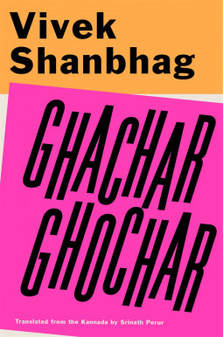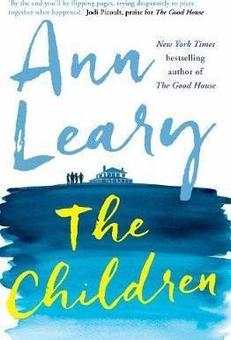Ghachar Ghochar by Vivek Shanbhag (translated by Srinath Perur)
Growing up in the South Indian city of Bangalore, the unnamed narrator lived with his parents, sister and father’s younger brother in a four-room house, his father supporting them all on his meagre salary as a salesman. Partly on account of the lack of private space, partly because the family’s survival required everyone to assist the breadwinner with his accounts, there was a strong spirit of openness and healthy interdependency. But, the father’s redundancy coinciding with the uncle’s completing his studies, they decide to go into business importing, packaging and selling spices. Against the odds, the business flourishes and the family moves to more comfortable and spacious accommodation. So could this be a simple story of rags to riches?
If so, the message might be that good fortune doesn’t make us better people. Early on in the novel, the narrator’s mother and sister (the latter having returned home after the breakdown of her marriage) humiliate a young woman who has called at the house with food she has cooked for the uncle and chase her way. It becomes clear that, although the narrator has an office at the warehouse, only the uncle does any work there, and he must be kept happy at all costs. There are hints too, from his friendship with a local gang leader, that the business is not run as ethically as it ought.
Despite the allusions to violence, the gentle, humorous and self-mocking voice, and seemingly plotless structure with each chapter illustrating an aspect of character or family culture through a specific incident, I was seduced into reading this as a light entertainment on modern Indian mores. When the narrator marries and his independent-minded wife, Anita, comes to live with them, her conflicting assumptions about work and family life, underlines how every family is odd in its own way. Having already been shown their hostility to outsiders, both through the treatment of the bringing food to the uncle and their response to an invasion of ants, I ought to have anticipated the ending, but it came as a deliciously disturbing surprise.
Barely longer than a short story, and with an exquisite attention to detail characteristic of the form, it’s a story that lingers in the mind. No word is superfluous, everything relevant, everything interlinked, as the title forewarns, “ghachar ghochar” being a term invented by Anita’s family to mean irrevocably entangled. But how could I not love a novel that starts in a coffeehouse reminiscent of the chain I used to frequent in India where, despite the waiters’ Raj-style white uniform complete with turban and red cummerbund, was always a comfortable place to feast on delicious South Indian food? Published by Faber and Faber, who provided my review copy and translated from the original Kannada by Srinath Perur, Ghachar Ghochar is Vivek Shanbhag’s English-language debut and ninth book of fiction. I do hope this short novel does well enough for further translations of his work to follow.
For another novel about a “ghachar ghochar” family, see my review of See What I Have Done.
The Children by Ann Leary
Somewhat reserved and rather rigid in their routines, the delightfully portrayed Maynard women are initially suspicious of Laurel, although she might have good reason to be equally suspicious of them. The narrator, Charlotte, an introverted social-phobic character who rarely leaves the property in daylight, earns a decent income through her alter ego as a lifestyle blogger which verges on the fraudulent. Her mother, Joan, is an emotionally-distant narcissist who spends most of her time running and playing tennis. Her sister, Sally, is a talented composer and musician, is as highly strung as the violin she plays an orchestra, ever at risk of being swept away by the high tide of mania.
Laurel wins them round, as she’s done with Spin and Perry. Yet her presence makes them question almost everything about the family culture and long-buried resentments begin to simmer, then bubble over with disastrous consequences.
I discovered Ann Leary’s fiction through a Goodreads giveaway of her previous novel The Good House. I think I enjoyed The Children even more. Thanks to Corvus for my review copy.























 RSS Feed
RSS Feed





















